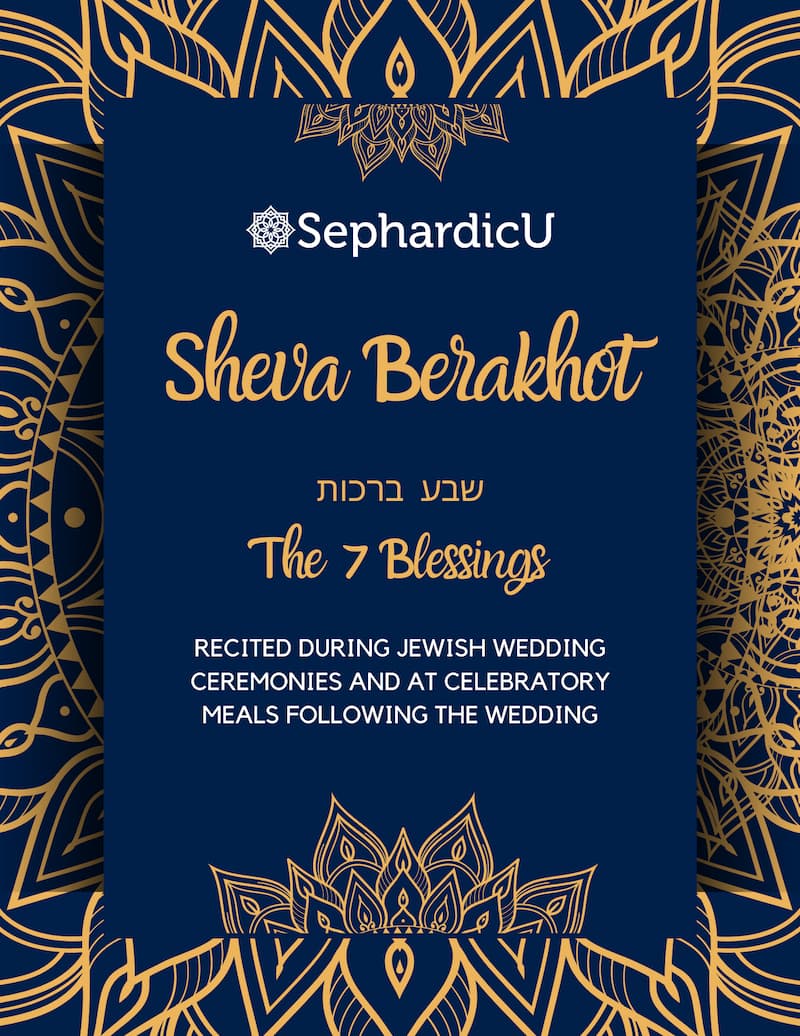
In Jewish tradition, the Sheva Berachot (שבע ברכות) are the seven blessings recited during wedding ceremonies and during celebratory meals held in honor of a newly married couple. These blessings are considered a central part of the wedding festivities, emphasizing joy, unity, and the sanctity of marriage.
Structure and Content
- Origins and Significance: The Sheva Berachot have ancient origins, dating back to Talmudic times. They are rooted in the belief that marriage is a sacred union blessed by God, and they express prayers for the joy and fulfillment of the couple.
- Recitation: Traditionally, the Sheva Berachot are recited over a cup of wine, which symbolizes joy and sanctification. They are typically led by a rabbi or officiant, although family members and honored guests may also participate.
- Content of the Blessings:
- The blessings begin with praise for the creation of the universe and the creation of humanity in God’s image.
- They proceed to bless the couple specifically, asking for joy, love, companionship, and harmony in their marriage.
- Each blessing reflects themes of partnership, fertility, and happiness, invoking God’s blessings upon the couple as they embark on their new life together.
Ritual and Practice
- At the Wedding Ceremony: The Sheva Berachot are first recited under the chuppah (wedding canopy) immediately following the marriage ceremony. This moment signifies the beginning of the couple’s union and is a focal point of the wedding ritual.
- During the Week Following the Wedding: According to Jewish tradition, the Sheva Berachot are repeated at festive meals held during the week following the wedding. These meals are known as Sheva Berachot meals and are typically hosted by family members or friends in honor of the newly married couple.
- Community and Celebration: Sheva Berachot meals are occasions for joyous celebration and community participation. They often include traditional Jewish songs, blessings, and words of Torah shared by guests to honor the couple and to bring blessings upon them.
Variations Between Ashkenazi and Sephardic Traditions
While the core elements of the Sheva Berachot are shared across Jewish traditions, there are variations in how they are recited and observed between Ashkenazi and Sephardic communities. These variations may include differences in the wording of the blessings, the timing and number of recitations, and specific customs associated with the meals and celebrations.
Conclusion
The Sheva Berachot hold a special place in Jewish weddings, symbolizing the community’s support and blessings for the newly married couple. They embody the hopes and prayers for love, happiness, and fulfillment in marriage, reaffirming the sacredness of the union and the continuity of Jewish traditions across generations.
Learn more about Sephardic Lifecycle events.








Ohr HaChaim Yomi – Emor